
By BY RASHIDA TLAIB AND EDUARDO SUPLICY from NYT Opinion https://ift.tt/2SCkq7A





(NEW YORK) — TV actor Allison Mack, who played a key role in the scandal-ridden, cult-like group NXIVM, was sentenced to three years in prison Wednesday on charges she manipulated women into becoming sex slaves for the group’s spiritual leader.
Mack — best known for her role as a young Superman’s close friend on the series “Smallville” — had previously pleaded guilty to the charges and began cooperating against NXIVM leader Keith Raniere. Prosecutors credited her with helping them mount evidence showing how Raniere created a secret society of brainwashed women who were branded with his initials.
[time-brightcove not-tgx=”true”]
At her sentencing in Brooklyn federal court, Mack renounced the self-improvement guru.
“I made choices I will forever regret,” she said, also telling the judge she was filled with “remorse and guilt.”
“I am sorry to those of you that I brought into NXIVM,” she wrote in a letter filed with the court last week. “I am sorry I ever exposed you to the nefarious and emotionally abusive schemes of a twisted man.”
She reiterated her apologies to the victims in court on Wednesday: “From the deepest part of my heart and soul, I am sorry.”
Mack wept at times while reading her statement to the court. U.S. District Judge Nicholas Garaufis told her he believed her apology was sincere, but said she deserved a serious sentence for using her celebrity to groom victims as “a willing and proactive ally” and “essential accomplice to Raniere’s monstrous crimes.”
Under advisory sentencing guidelines, Mack had faced between 14 and 17 1/2 years behind bars, but her defense team argued in court papers that probation or a sentence to home confinement was more appropriate. Prosecutors had agreed that any prison term should be below the guidelines range because of her cooperation.
“The NXIVM saga and the story of Ms. Mack’s descent have been a tragedy for all involved. But that need not, and should not, be the end of the story for Allison Mack,” her lawyers wrote in court papers.
A victim, Jessica Joan, rejected Mack’s apologies, telling the judge the actor deserved no mercy.
“She can blame Keith all she wants but she is a monster cut from the same cloth,” Joan said in court on Wednesday. “Allison Mack is a predator and an evil human being.”
Mack, 38, was once part of the inner circle of Raniere, whose group attracted millionaires and actors among its adherents. Prosecutors said she became a “master” for “slaves” she ordered “to perform labor, take nude photographs, and in some cases, to engage in sex acts with Raniere.”
As authorities closed in on Raniere, he fled to Mexico with Mack and others to try to reconstitute the group there. He was arrested and sent to the United States in March 2018; Mack was arrested a few days later.
“Ms. Mack now understands that this was the best thing that could have happened to her at that time,” the defense papers said.
Mack provided information to prosecutors about how Raniere, now 60, encouraged “the use of demeaning and derogatory language, including racial slurs, to humiliate ‘slaves,’” the government papers said. More importantly, she provided a recording of a conversation she had with Raniere about the branding, they added.
The branding should involve “a vulnerable position type of a thing” with “hands probably above the head being held, almost like being tied down, like sacrificial, whatever,” Raniere told her. The women, he added, “should say, ‘Please brand me. It would be an honor.’ Or something like that.”
Raniere was sentenced last year to 120 years in prison for his conviction on sex-trafficking charges. A 41-year-old heir to the Seagram’s fortune, Clare Bronfman, was sentenced to nearly seven years in prison in September for her role as Raniere’s unwavering benefactor.
Mack was allowed to remain out on bail in home confinement until surrendering to prison on Sept. 29. She left the courthouse on Wednesday without speaking to reporters.
(PHILADELPHIA) — Pennsylvania’s highest court threw out Bill Cosby’s sexual assault conviction and opened the way for his immediate release from prison Wednesday in a stunning reversal of fortune for the comedian once known as “America’s Dad,” ruling that the prosecutor who brought the case was bound by his predecessor’s agreement not to charge Cosby.
Cosby, 83, has served more than two years of a three- to 10-year sentence after being found guilty of drugging and violating Temple University sports administrator Andrea Constand at his suburban Philadelphia home in 2004. He was the first celebrity tried and convicted in the #MeToo era.
[time-brightcove not-tgx=”true”]
The former “Cosby Show” star was arrested in 2015, when a district attorney armed with newly unsealed evidence — the comic’s damaging deposition testimony in a lawsuit brought by Constand — brought charges against him days before the 12-year statute of limitations ran out.
But the Pennsylvania Supreme Court said that District Attorney Kevin Steele, who made the decision to arrest Cosby, was obligated to stand by his predecessor’s promise not to charge Cosby. There was no evidence that promise was ever put in writing.
Justice David Wecht, writing for a split court, said Cosby had relied on the former district attorney’s decision not to charge him when the comedian gave his potentially incriminating testimony in the Constand’s civil case.
The court called Cosby’s arrest “an affront to fundamental fairness, particularly when it results in a criminal prosecution that was forgone for more than a decade.”
The justices said that overturning the conviction, and barring any further prosecution, “is the only remedy that comports with society’s reasonable expectations of its elected prosecutors and our criminal justice system.”
A Cosby spokesman did not immediately return a message seeking comment. Nor did a Steele representative, Constand or her lawyer.
“FINALLY!!!! A terrible wrong is being righted — a miscarriage of justice is corrected!’ the actor’s “Cosby Show” co-star Phylicia Rashad tweeted.
“I am furious to hear this news,” actor Amber Tamblyn, a founder of Time’s Up, an advocacy group for victims of sexual assault, said in a Twitter post. “I personally know women who this man drugged and raped while unconscious. Shame on the court and this decision.”
Four judges formed the majority that ruled in Cosby’s favor, while three others dissented in whole or in part.
Even though Cosby was charged only with the assault on Constand, the trial judge allowed five other accusers to testify that they, too, were similarly victimized by Cosby in the 1980s. Prosecutors called them as witnesses to establish what they said was a pattern of criminal behavior on Cosby’s part.
The Pennsylvania Supreme Court justices voiced concern about what they saw as the judiciary’s increasing tendency to allow testimony that crosses the line into character attacks. State law allows “prior bad acts” testimony only in limited cases, including to show a crime pattern so specific it serves to identify the perpetrator.
But the court declined to say whether five other accusers should have been allowed to testify, considering it moot given the finding that Cosby should not have been prosecuted in the first place.
In New York, the judge presiding over last year’s trial of movie mogul Harvey Weinstein, whose case had sparked the explosion of the #MeToo movement in 2017, let four other accusers testify. Weinstein was convicted and sentenced to 23 years in prison. He is now facing separate charges in California.
In May, Cosby was denied paroled after refusing to participate in sex offender programs behind bars. He has long said he would resist the treatment programs and refuse to acknowledge wrongdoing even if it means serving the full 10-year sentence.
Prosecutors said Cosby repeatedly used his fame and “family man” persona to manipulate young women, holding himself out as a mentor before betraying them.
Cosby, a groundbreaking Black actor who grew up in public housing in Philadelphia, made a fortune estimated at $400 million during his 50 years in the entertainment industry. His trademark clean comedy fueled popular TV shows, books and standup acts.
He fell from favor in his later years as he lectured the Black community about family values, but was attempting a comeback when he was arrested.
The AP does not typically identify sexual assault victims without their permission, which Constand has granted.














Among the rocks of their Caribbean archipelago, a group of trans artists and creatives in Puerto Rico have found their safe port. It is a harbor offering them safety and affirmation amid choppy waters. Both a natural resource and cultural construct, it has an appropriately reverential name: House of Grace.
House of Grace was founded by María José, a transdisciplinary artist and activist, in the months after Puerto Rico was ravaged by Hurricane Maria in 2017. In the midst of natural disasters and a global pandemic, when rains have flooded and the earth has been shaken, the dancers, performers and writers who make up the House have laid down collective roots, built trust and chosen one another.
[time-brightcove not-tgx=”true”]
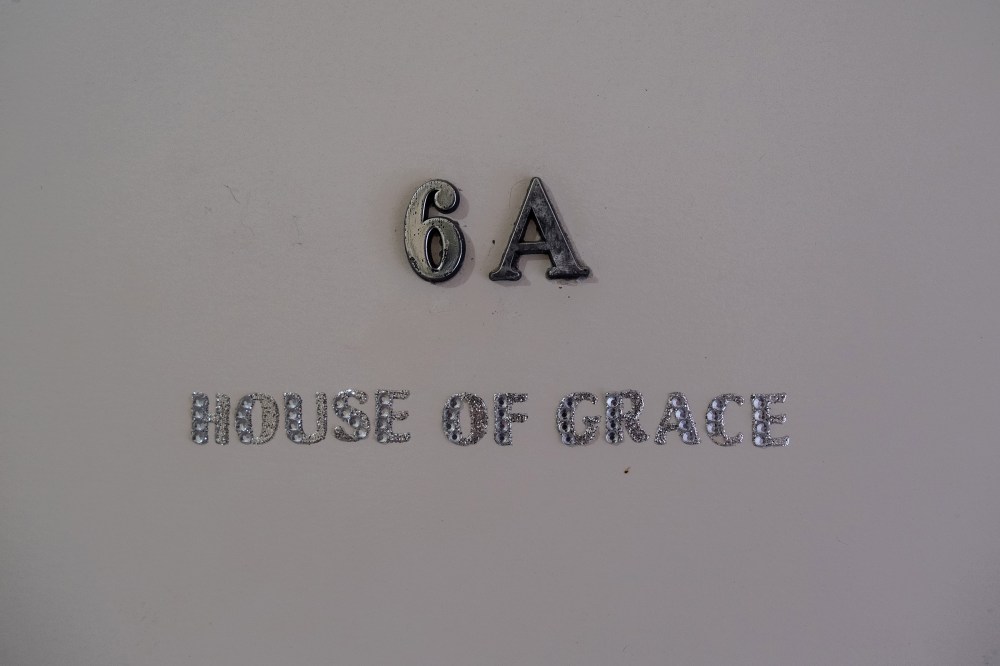


Despite its name, the House is not a physical domicile but instead a group who work to take care of themselves, and to uplift each other’s power, beauty, and artistic talents amid a worsening culture of discrimination against queer and trans people. Over time, House of Grace has evolved into a tight-knit yet welcoming community—and a family.
“To me, a family is a group of people that are willing to support each other through the unpredictable, imperfect and complex experience of being human,” María José, 28, tells TIME. “A collective that will stand up for each other against any threat.”
María José had first gathered the group to practice dancing as a language to express liberation. That was when Lú, a founding member of the House, first learned to vogue—an opportunity to embrace their gender identity. Lú now speaks of voguing with the same sparkle that they use to describe their House: “I was very discriminated against as a ballet dancer. I had always been very feminine, [and] was constantly told I had to be more masculine,” Lú explains. “In vogue I found a celebration of the nonbinary.”
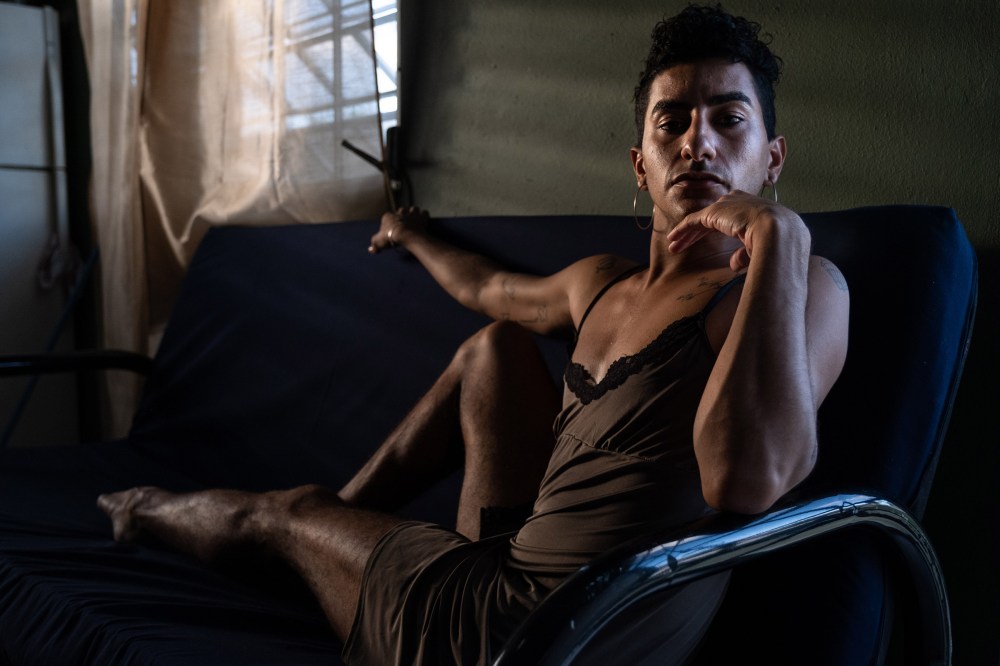

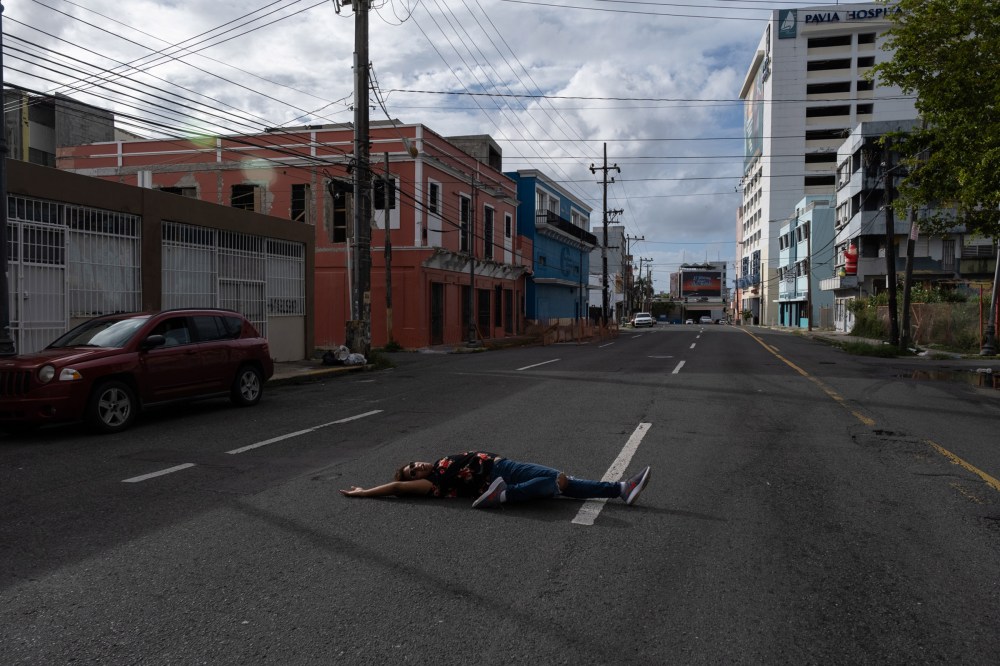
“Being queer in Puerto Rico has always been a struggle, especially if there haven’t been [other] queer people in your family,” Lú continues. “On my family’s end, I have felt support, but we do not understand each other in the same way we get each other at House of Grace. It isn’t the same relationship.”
In essence, House of Grace has become a “chosen family”—a group that can coalesce alongside, or more often in the place of, its members’ biological relatives, and works to provide authentic kinship and the support to which queer individuals are often denied. It offers space for individuals to discover their truths, and to live them; to develop nuanced relationships and find partners in love and crime, teachers and students, cheerleaders and confidants and therapists and advocates.
Members of such families can take on heteronormative, hierarchical roles—such as those of “house parents” in the drag and ballroom scenes, for example—or work as a collective in which responsibilities are shared as equitably as possible. Many of the House of Grace’s members credit María José as a mom figure; to Lú, she is one who provided them tools to heal and cope with everything from a “ lack of love” to a “[lack of] lunch.” (But the House, María José notes, aims to become a decentralized space in which all its members can parent each other.)
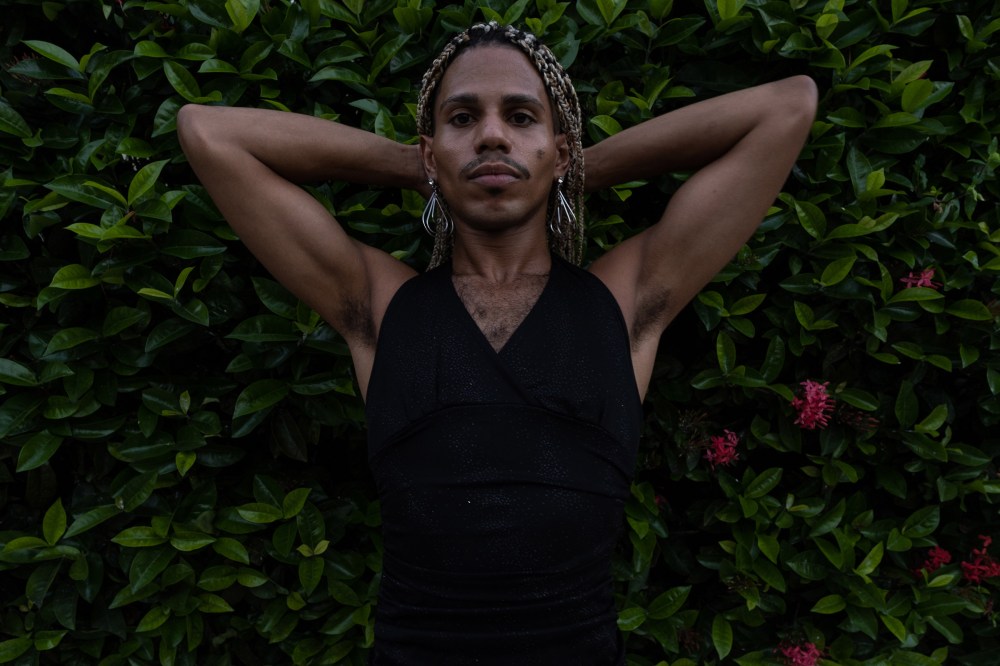

Trans people in Puerto Rico face systemic discrimination at work and public spaces, and are at a disproportionate risk of anti-gay and anti-trans violence and hate crimes. According to official records, 6 trans people on this island of only 3.1 million were killed in 2020—a devastating toll to begin with, and one that the queer community believe is drastically undercounted. It is believed that nearly 10% of last year’s officially reported femicides were transfemicides—such as the February 2020 murder of Alexa Negrón Luisiano, a killing which received much media attention but remains unsolved. This total is three times the toll of 2019. (Sexual harassment of trans people is equally widespread and ignored; Lú experienced it in a former workplace with few consequences—though, they note, fellow House of Grace members offered much emotional support.)
And the issue is compounded by the unreliability of Puerto Rico’s government when it comes to data and records-keeping. During Hurricane Maria, for example, the government asserted a death toll of 64, but was forced to recognize nearly 3,000 hurricane related fatalities months later; a Harvard University study published in May 2018 claimed hurricane-related deaths could have reached 4,645.

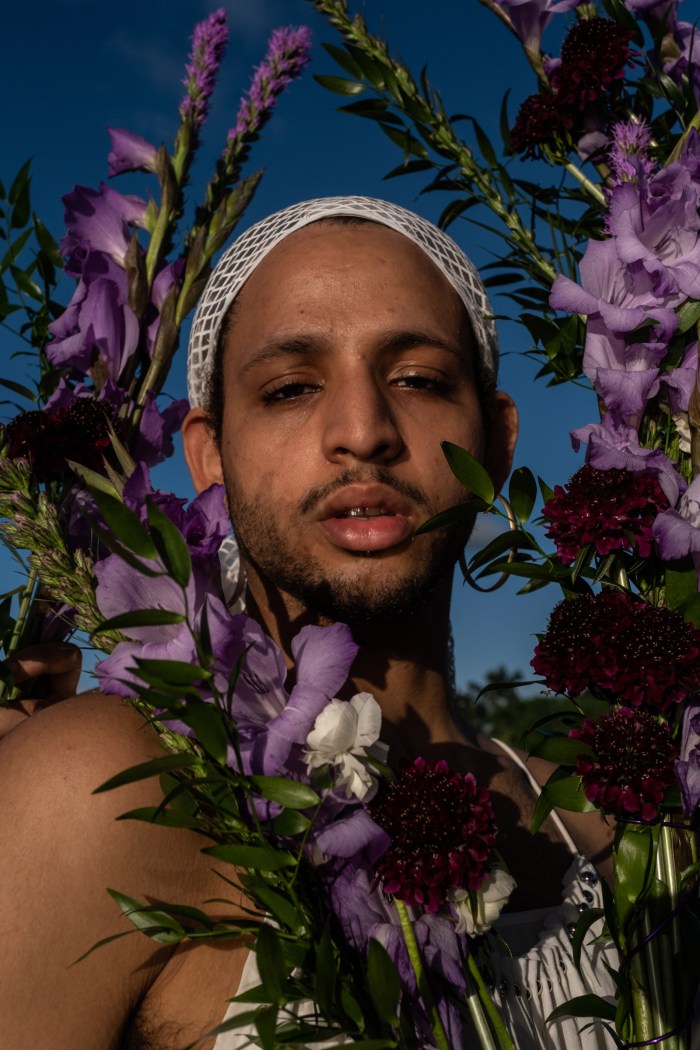
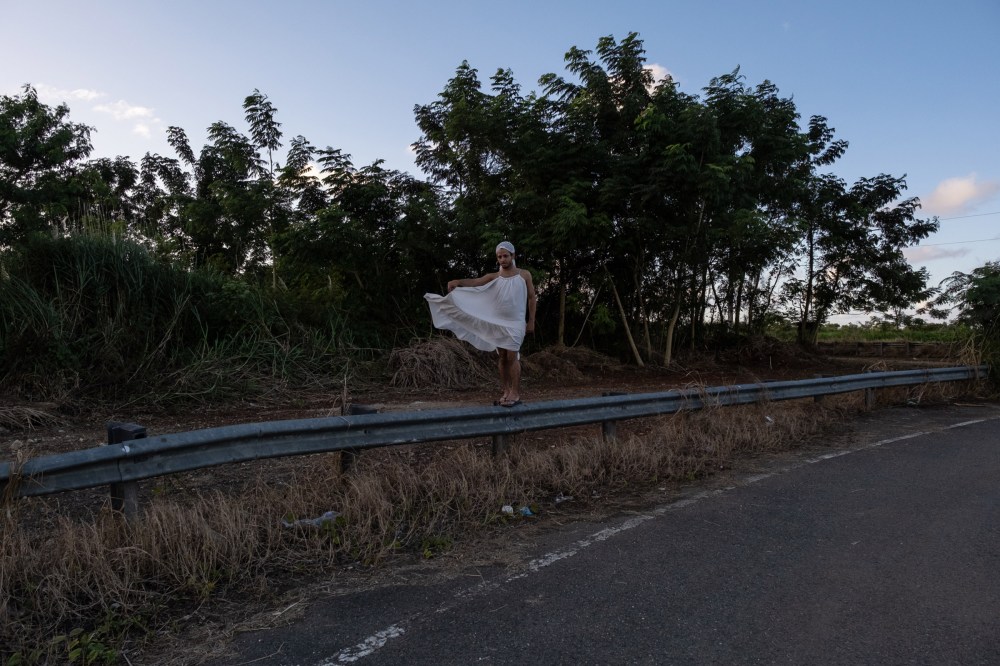
“My dream as a trans person living in Puerto Rico is that we can all live freely and joyfully, not expecting violence every time we walk down the street,” explains Yeivy, 31, a founding member of the LGBTQ collective La Sombrilla Cuir (the Queer Umbrella) and a well-known queer rights activist. “We are slowed and tripped every step of the way by the government and by the religious fundamentalists that pressure officials into delaying necessary legislation. We are tired but we will do what is necessary to be treated with the respect we deserve and no less.”
Relief organizations such as Proyecto Matria, which works to provide housing and financial support to members of the trans community in Puerto Rico, cite homelessness as an endemic issue. “During the pandemic I was homeless for 8 months,” Beibijavi, a 22-year-old dancer who migrated from Ciudad de Panamá as a young child, tells TIME. “I had to leave my biological family’s house… It wasn’t a safe space for me.” During this process, Beibijavi, who identifies as a trans non-binary person, lived intermittently with fellow members of the House.
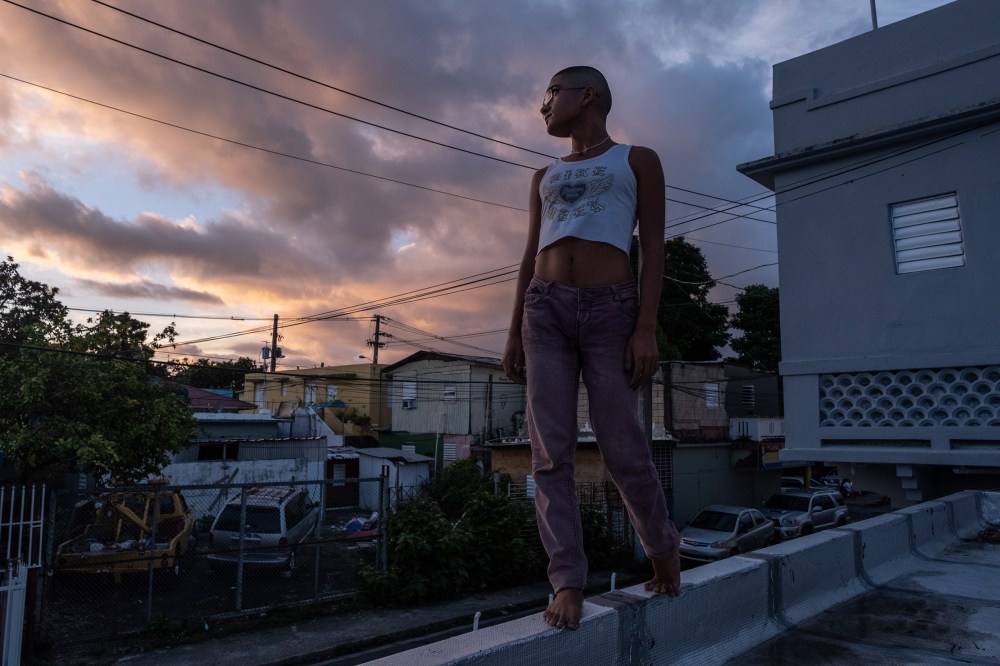

Had they the collective funds to live together permanently, many of House of Grace’s members say they would do so. “Our goal is to have a house, and a dancing studio,” says Beibijavi. “We need funding.” But amid Puerto Rico’s ongoing economic crisis, the House’s daily bread is the lack thereof.
Still, the House has a special “support” group chat where they share needs they might have, so that their family can help meet them. “People are constantly checking up on me,” Lú says; when Beibijavi was living without access to clean water for a period of time, the House provided them the money to buy a filter. (The House also extends resources to members of Puerto Rico’s trans community more broadly, even if recipients are not officially affiliated.)
And to mark holidays or other special occasions, they celebrate together. Last November, in the midst of the coronavirus pandemic, they held a “Transgiving” at Lover bar, a queer bar in San Juan that serves as “a safe space for everyone,” as a poster on one of its bright pink walls promises.
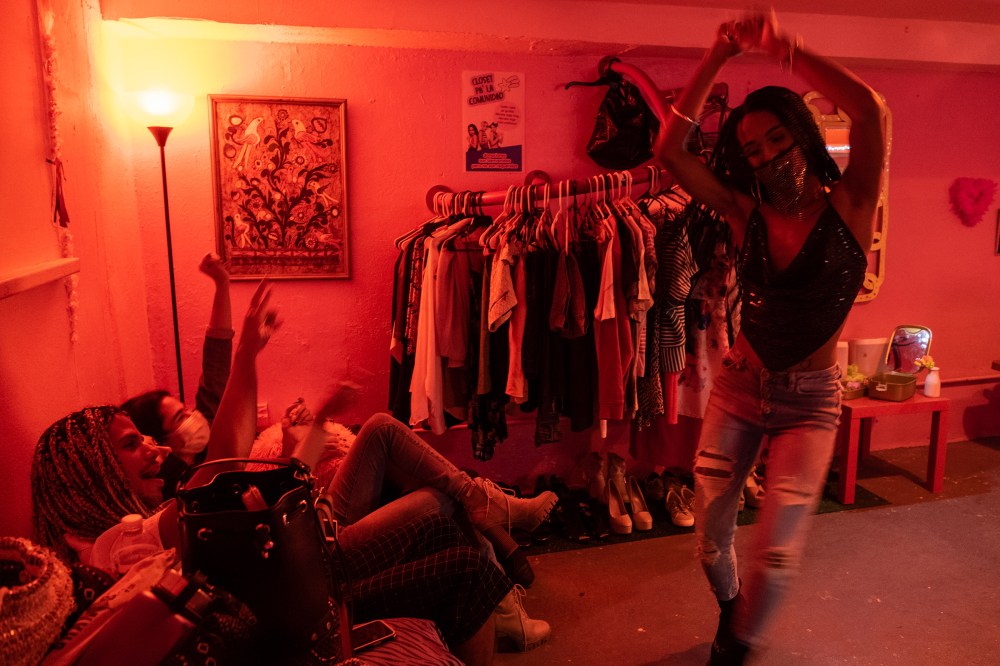
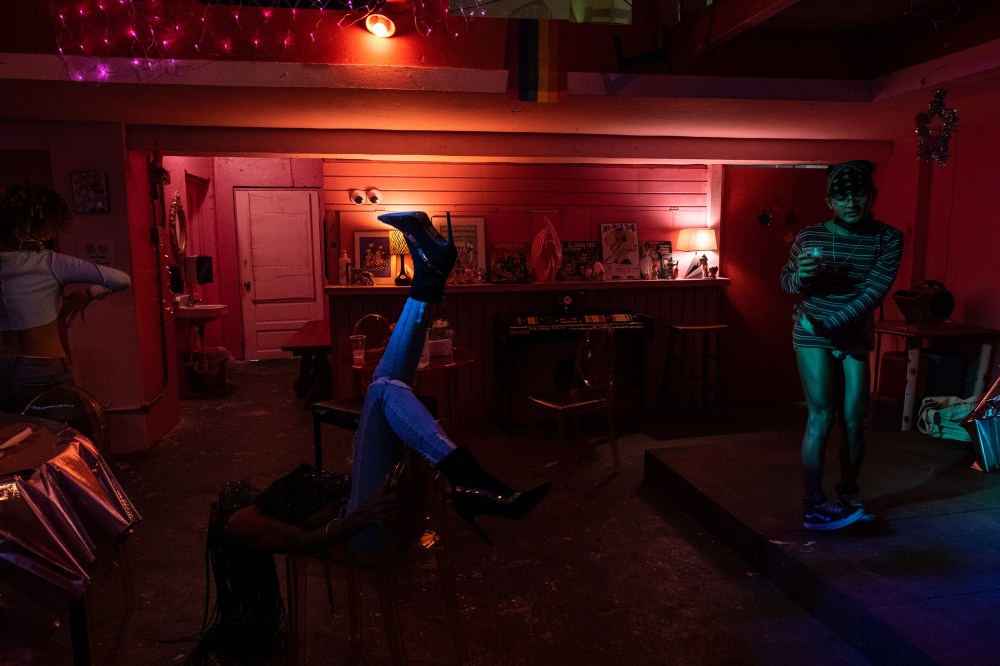
With queer locals as the bar’s main customers—and not tourists—an innate sense of community is apparent. Wearing their masks (and safe in the knowledge they were being seen regardless), the House came together to share food, and to celebrate that they have each other in their lives and in their care.
“For me, [the act of] taking care is saying: I am not abandoning you,” María José says. “Do you know how many trans people are abandoned by their parents? I made a decision: I am not abandoning these people … I am not perfect. But I keep going forward day by day, trying the best I can to fulfill my responsibilities in a way that directs us all towards justice.”

